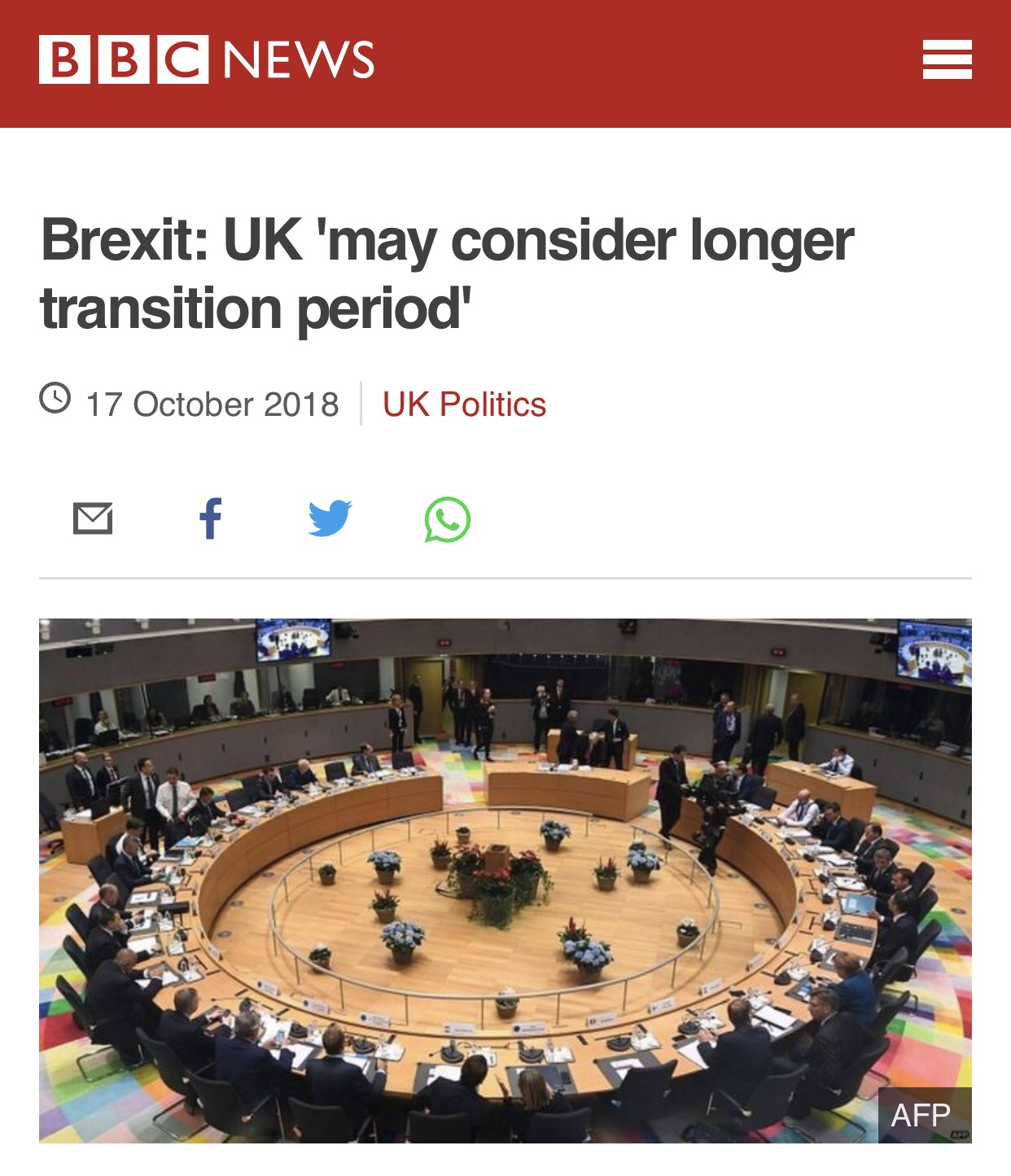Brexit: UK ‘may consider longer transition period’
Theresa May is willing to consider extending the proposed 21-month transition period after Brexit to break the current deadlock over Northern Ireland, senior EU officials have said.
The BBC’s Laura Kuenssberg said No 10 had refused to rule out extending it during a summit in Brussels.
The PM has been addressing EU leaders in the hope of advancing the process.
But EU officials said insufficient progress had been made to call a special summit of leaders next month.

The two sides are currently proposing an implementation period from 30 March 2019 until 31 December 2020.
The BBC’s political editor said extending it until to the end of 2021, as has been proposed by the EU, would cause a “lot of hostility” among Tory Brexiteers as it would substantially extend the period during which the UK would remain subject to EU rules without having a say in them.
The UK is due to leave the EU on 29 March 2019 but an agreement on how this will happen is currently proving elusive amid differences over how to prevent a hard border on the island of Ireland.
The prime minister spoke for about 15 minutes at a dinner of all 28 EU leaders, after which they will decide what their next move should be.
The president of the European Parliament, Antonio Tajani, welcomed what he said was Mrs May’s constructive tone but added that she had offered “nothing new” of substance.
Mr Tajani suggested that Mrs May had shown willingness to look into the possibility of extending the proposed 21-month transition period following Brexit to three years.
“Both sides mentioned the idea of an extension of the transition period as one possibility which is on the table and would have to be looked into,” he said.
“She underlined the importance of the issue but she didn’t say anything in terms of content.
“She said we will keep under consideration the issue of the transition period but she did not say anything in favour or against the three-year period.”
The UK has said the transition period, dependent on an overall deal being agreed, is necessary to stop a “cliff-edge” for business and give the two sides time to agree their future relationship.
Earlier, Irish Prime Minister Leo Varadkar said a longer transition period was not a substitute for an agreement on the so-called Irish backstop, designed to prevent the need for customs checks at the border between Northern Ireland and the Irish Republic until a wider trade deal is done.
But he said it would have some merits, adding “if it did help to reassure people that the backstop would never be activated, that would be a positive thing”.
BBC political correspondent Nick Eardley, in Brussels, said EU sources suggested the PM had given a “relatively positive assessment” and while there was goodwill on both sides “we are not where we would have liked to be”.
He said the President of the European Commission, Jean-Claude Juncker, would update leaders on the preparedness for all scenarios including no deal.
Source: BBC News
You must be logged in to post a comment.